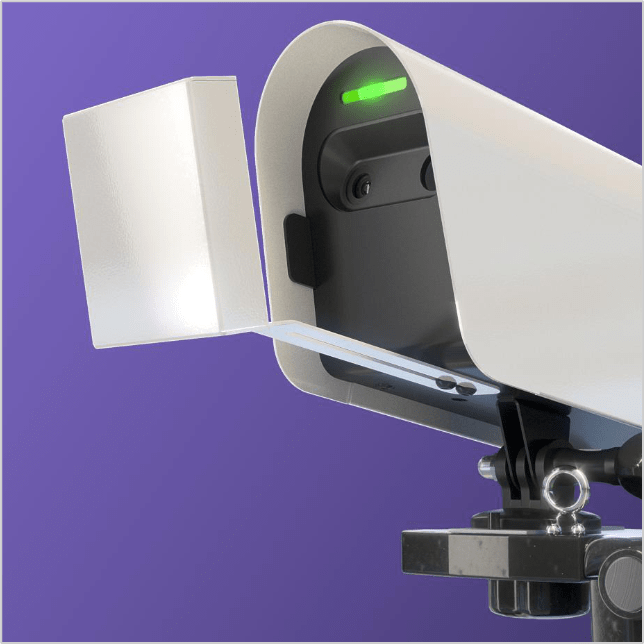Industry IoT, also known as Industrial IoT or IIoT, opens the road for new opportunities in automation, smart manufacturing, time optimization, maintenance, and monitoring. Find out in this article what is industry IoT, its applications, benefits, and real-life examples.
What is industry IoT?
We are in an era of connectivity, companies and people want to control any device from their phones and also get useful information that can be used for different purposes. IoT for industry or IIoT, represents a big step in manufacturing, energy management, and data collection for posterior analysis.
Industrial IoT comprises any device or technology that can be used for the benefit of increasing productivity and enhancing industrial processes. How can this be done? Through information. Industry IoT relies on data collection. Once companies have gathered useful information on their processes, flaws and ways to improve their IoT product development, they will take the business to a new level; this is one important aspect that shows the importance of IoT.
What sectors use IoT industrial solutions?
Industry IoT devices are used in different sectors to improve productivity, monitor the performance of machinery, keep control of devices’ location, and automate processes.
Among the different Industry IoT applications, you can find that logistics companies, hospitals, and manufacturers use asset tracking to keep control of assets’ location throughout the supply chain. This practice also guarantees a good monitoring of products and equipment conditions, to avoid losing thousands of dollars if the company operation needs to be interrupted because of failures.
Agriculture is another sector that is benefited by industry IoT. The influence on this sector has been so big that it has led to coining the term smart agriculture or Agtech: devices, companies or technological solutions applied in agriculture. Imagine having the possibility to collect real-time information on the status of crops, weather conditions, quality of soil, and make decisions accordingly.
The automotive industry uses IoT and robots to manufacture cars. The information generated by these machines allows the systems to work properly, and detect potential problems that would affect productivity.
Waste management companies also use industrual Internet of Things devices for their processes, since it is necessary to know how to handle biological waste in a way that doesn’t affect the environment.
Among the IoT industry trends, we could mention smart parking, which allows reducing driving times in the cities where the traffic volumes are high; the technology works in this case as an ally to reduce CO2 pollution.
You have seen so far some general examples of Iot by industry. Now, it is time to go deeper into the benefits of industrial IoT.
What are the benefits of industry IoT?
IIoT generates great advantages for companies. Connectivity is something that CEOs value, since now they feel they can control more aspects of the business, and so, make more accurate decisions.
There are plenty of benefits of using the Internet of Things in the industry. One of them is the possibility to reduce downtimes. Stopping production is something that no one wants to experience. First, it generates big losses, and second, the company loses competitiveness in relation to other businesses.
Industry IoT provides useful data on how the machines are working, through special sensors and thermal cameras, they can be monitored 24/7 and do preventive maintenance when necessary. This, of course, will reduce production downtimes, and the company won’t lose money.
Monitoring machines also helps to take care of workers’ safety, since the facilities will be more secure in the event a fire occurs or an explosion. IoT sensors distributed along the company will alert immediately that there is a problem and then fix it as soon as possible.
Maximizing asset utilization. This is one big important advantage of using IoT for industries. When you can monitor a process, evaluate the use of resources, time for production, and quantity of inputs used, you can create strategies to maximize the utilization of your assets, and so, reduce production costs.
Another benefit of industrial IoT is the possibility to create new business opportunities through IoT hardware development. Thanks to the Internet of Things, manufacturers get tons of information from different areas such as production, customer service, logistics, complaints, marketing, and sales (What is IoT analytics).
This information allows the companies to improve the next releases of new products, or maybe identify new business opportunities that aren’t being explored by other companies.
Real-life examples of industry IoT
At DeepSea Developments, we have had the opportunity to design and develop Internet of Things industrial devices for companies that belong to different sectors. We developed a tracking device for a company focused on energy transmition and mobility, and this tracker helped them to boost sales and establish new alliances.
Another company from healthcare market identified a specific need in the treatment of patients with post traumatic disorder thanks to the use of IoT. But, instead of designing a new device, we updated one that already existed by improving its technology (IoT connected) and making it more user-friendly.
Another business identified the need to monitor the tractors they were using on a big farm. So, we built a special Industry IoT sensor that would alert the farmers when something was wrong with the machinery, the performance of the tractors, and their real-time locations.
As you could see in this article, there are many industrial IoT applications. If you have a great idea or a built device, we invite you to contact us and get a free consultation. Our engineering team is ready to help you out and take your project to the next level.






